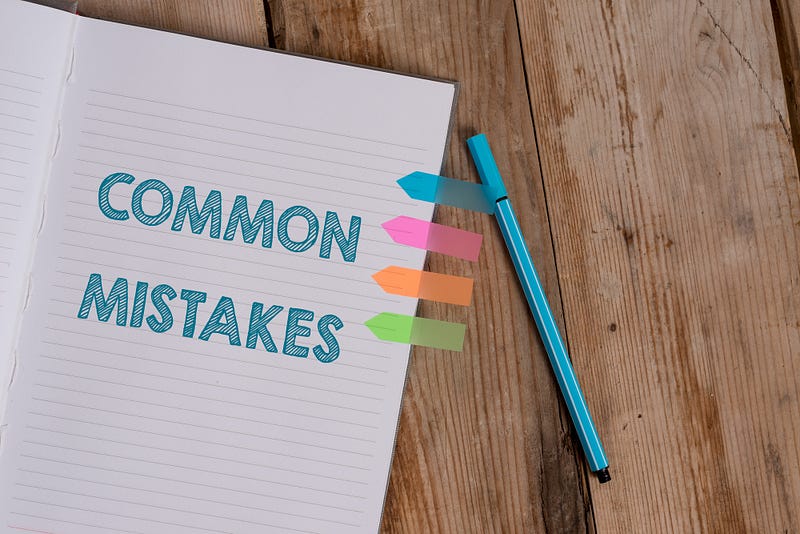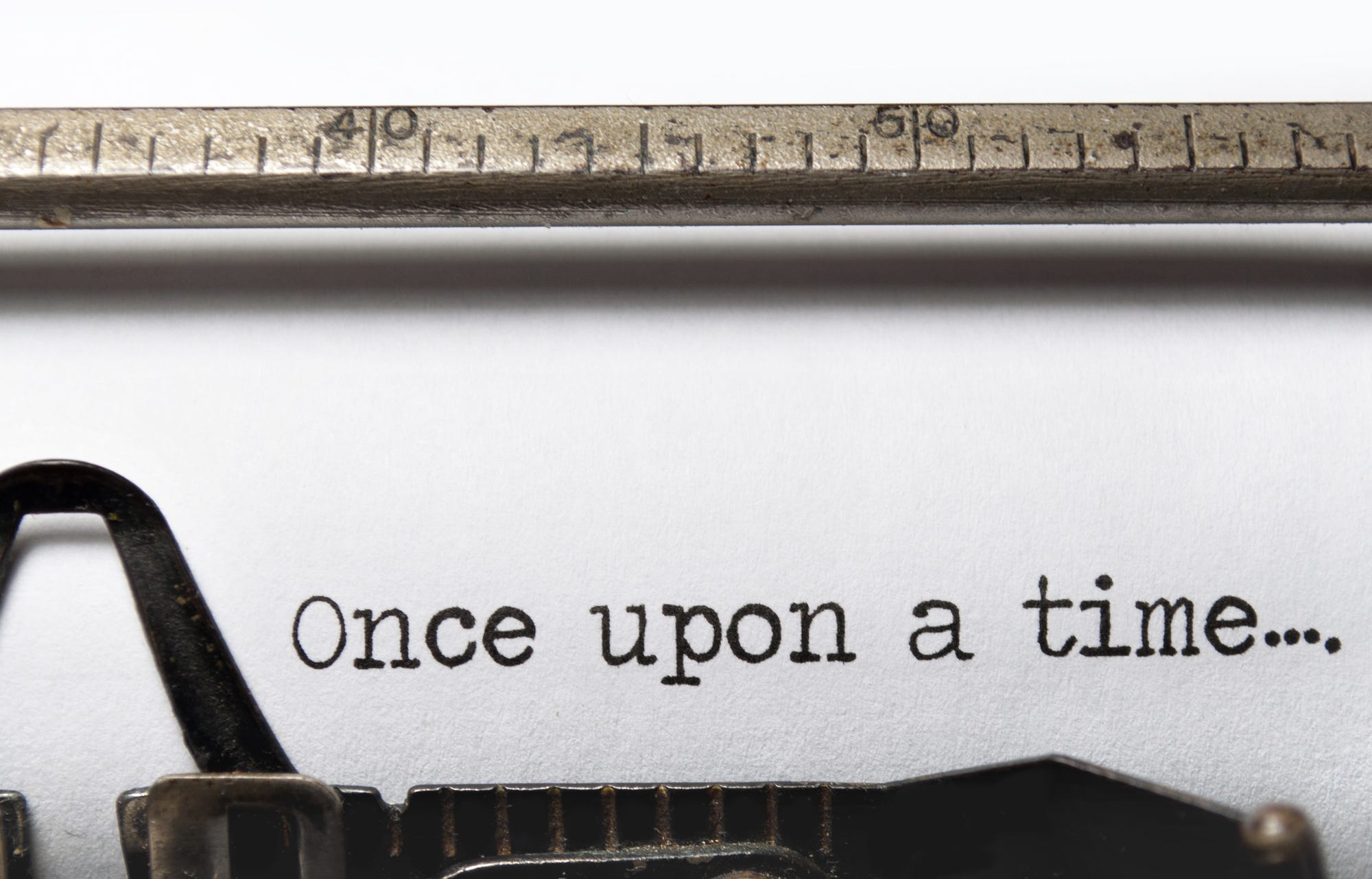Why Writing By Hand First Can Help You Write Better

Writing by hand (longhand) or direct to computer? I’ll choose pen and paper first. Every time.
I love it.
It all began once upon a time when I was a child in Enugu, Nigeria. My dad used to bring home long sheets of engineering draft paper – unlined white crinkly paper, which we, the kids would spread out on the cool tile floors in our bedrooms and then proceed to lie on the floor writing and illustrating our stories with pencils and crayons.
Writing by hand was a perfect way to spend hours of time
What bliss!
Later in life as I sat in university lecture halls during microbiology, parasitology, organic chemistry, anatomy and physiology and a host of other classes, I’d write copious notes by hand and developed the skill of writing down the essential information I needed to know.
I noticed that I remembered and retained the knowledge I had written by hand, more clearly than just by reading the textbook. In fact, I supplemented textbook reading with my own notes.
I ran across a 2014 Study that indicated what I had noticed all along. You learn and remember more, conceptually, when you take notes by hand. Needless to say, I did quite well in those courses. I really enjoyed them.
It is not inconceivable that writing by hand may help you better remember or keep track of the different aspects and details of your work or storyline as you write as compared to typing it out first.
When I write books, or anything really, I always start with pen and paper. Rarely do I type first. Except for informal email messages. It has something to do with how my brain works.
When I write by hand it’s as though my thoughts form and wrap themselves into cohesion as the impulses flow from my brain down to my fingers.
The creative process occurs at lightning speed as nerve impulses race down my arm and as the words begin to flow from fingers to page.
I am creating as my fingers write. Laser focused.
When I write by hand, everything else fades into the background because my attention is completely centered on capturing all the thoughts before they rush past me.
Ten to fifteen minutes after this process begins, I’ll enter into a zone where my brain works faster and faster and I have to write faster to keep up. And while the first few pages of writing may be rusty or downright bad, the more I write the better, more cohesive the writing becomes.
Ever wonder why sometimes you read over something you’ve written when you were in the zone and you say to yourself, “Wow! This is good.” It almost feels as though someone else wrote it. For me, this is the best feeling in the world. I never get this sensation when I type directly on a keyboard.
And another thing that happens is that when I write by hand and get into the zone, I find that I don’t have to edit as much when I go back over what I have written.
I am fully engaged in creating and editing, consciously and unconsciously.
When creating and typing directly on the keyboard, which I do very occasionally, it actually takes me longer to get a final copy that I’m satisfied with. I don’t seem to get into a writing fast and creatively writing zone.
Perhaps it’s because I’m continually distracted by the blue and red wavy lines popping up on the screen informing me of some mistake.
Or maybe it’s because I’m too busy making sure my fingers are positioned above the correct keys.
I keep having to resist making small corrections in spacing, spelling and grammar as I type. So while typing would seem faster at first, it does not end up saving me time at all.
It seems counter-intuitive, but I save time when I write everything out by hand, and then type and save what I have written.
There’s something so satisfying about seeing the evidence of my writing and creativity on paper in my own handwriting.
I can write wherever I go. All I have to do is carry along pens and paper – on a plane, at the park, library or café. I can write where there is no electricity, no battery charges, no equipment. I can write in bed, or cruising down a river in a small boat!
Just pen, paper and my brain, and I am set.
Here are just a few well-known authors who sometimes write by hand – J.K Rowling, Kristen Hannah, Stephen King, Neil Gaiman and Joyce Carol Oates.
What about you? What’s your experience? What works best for you?
Think You Can’t Do Something?
Think again.

Think you can’t do something that you would really like to do?
Perhaps due to your age, or for some other reason?
Life is short. Today (which is the only day that we know for sure that we have) is a good day to change from thinking that you can’t do something, to heck yes, you can!
I know. It sounds so simple, but sometimes you need to hear the same message over and over again before it begins to really sink in. I know I do.
Think you can’t do something?
Yes, you can!
You can do anything you want to do. Don’t limit yourself.
For me, I will add, within reason of course, due to my age. After all, I can’t run a long grueling marathon (actually I never did), or do two thousand sit-ups. I mean who would want to do that anyway?
There are just some physical things that I can’t, and might I add, don’t want to do. Period.
But that’s where it ends.
When it comes to starting a business that you’ve always wanted to start, or learning a new skill or language, writing a book, tandem skydiving, or adventuring around in some other country, you can do it at any age.
I changed my thinking and did all those things and more. And more importantly, I continue to do whatever I want to do.

- Learned to play the guitar, and even learned to read music. I’m also planning on taking piano lessons soon.
- Wrote several books. The first one was a children’s book about Nigeria, published by a traditional publisher, and the last one is about Moving to Ghana, the Essential Things You Need to Know which I self-published in 2018. I am currently working on yet another book.
- Parachuted out of a plane over San Diego at an altitude of 12,500 just to overcome my fear of heights. I almost chickened out when the instructor asked me if I had taken the brief pre-jump training. I hadn’t. But hey, I figured I was securely strapped to him so he had a vested interest in making sure that the jump was successful. Besides, I was already stepping into the aircraft.
- Adventured in and around Ghana and Nigeria for several years after retiring early so that I could do whatever I wanted to do. Senegal is on my radar. In fact, I now live part-time abroad.
Want to know my age?
I’m in my 60s.
The moral of the story
Don’t let anyone or anything stop you from doing what you want to do, whether you are in your 20s or 90s, or somewhere in between.
Come on now. We only have this one life to live. So live.
The key is to start little by little. Like the African (Kenyan) proverb goes, little by little, the bird builds its nest.
Go out there and start doing what you want to do.
On a personal note, like the bird, I’ve started my newsletter, little by little. It’s all about three of my favorite things to do. Reading, writing and helping others improve their writing, all with a good dose of encouragement thrown in.
If this sounds good to you, then go ahead subscribe to my weekly newsletter and let’s keep in touch!
Stop Doing These 13 Things and Start Feeling Better About Yourself Today

Navigating this world and these times is not easy especially when there’s so much pressure to conform
Conforming to expectations of others.
And along with all this conforming comes a chipping away of self value.
Each generation faces its own unique set of challenges, but one thing remains the same, no matter the generation.
No matter the time.
No matter the place,
To be truly happy and content in life you have to stay true to who you are.
I know. Sounds cliche, but that does not make it any less true.
You need to hear it.
And it is not enough for you to just say it.
You have to live it.
Especially if you have been made to feel “less than” or not good enough.
This is especially true for Black, Brown, Poor and Marginalized people, including women in many parts of world.
To feel happier and be stronger within, it’s imperative that you do not devalue yourself in a futile attempt to live up to the expectations of others.
Check out these 13 things that people do that undermine who they are. If you are doing any of them, stop doing them today.
Here are 13 Things to stop doing now so you can start feeling better about yourself
- Thinking the way of others is inherently better. All other ways we devalue ourselves follows from this one.
- Pursuing and adopting the values and ways of life of others and relegating our value and culture as second class.
- Dismissing our own history and incorporating the history of others. Their stories and experiences are now more credible than our own.
- Striving to conform to the physical standards and ideals of others to the point that we do not even see the beauty in ourselves.
- Placing more importance on the lives of others, with the result that somehow their lives are more important than ours.
- Choosing to remain uneducated in a world that offers so much free information.
- Failing to take responsibility for our actions and waiting for others to rescue us, while at the same time, not supporting those within us who can help. And then when things don’t work out, we begin to see ourselves as victims.
- Doing whatever it takes to make ourselves accepted by others, even if it means an erosion of self-respect.
- Trading who we are for who we are not.
- Failing to take care of our most vulnerable, our young people and our elders.
- Having children and abandoning them financially and emotionally.
- Continuing to be conspicuous consumers and not providing a foundation of education, financial literacy and wealth building strategies to our future generations.
- Failing to have a written will and other instructions in place for our families when we die.
Eliminate these behaviors and we will all be stronger, happier and more successful people.
Here are two other articles you may be interested in reading: https://maryoluonye.theredsunflower.com/will-cosmetic-surgery-make-you-happier/ and https://maryoluonye.theredsunflower.com/skin-bleaching-is-a-symptom-of-a-deeper-problem/
Racist Treatment of Africans and Indians During the Crisis in Ukraine
The Slow Coverage by Western Media

I’m not under any illusions about the racist implications concerning the treatment of Africans, Indians and others in Ukraine, and Western media’s slow response in covering their stories too.
What’s happening in the Ukraine is, without a doubt, appalling and senseless. All this fighting and killing and for what?
In the big picture, what is there to be gained?
But that is not the point of this post.
Glaring disrespect
The point of this post is the glaring disregard, disrespect and racism that we’ve all now witnessed where it comes to the lives of Black and Brown people in a war zone. In Ukraine.
Or anywhere else, for that matter.
I know, I know. Of course, not all Ukranians are disrespectful or racist, but here’s the thing; a significant number of Ukranians in positions of authority, or in positions that can affect the safety or future of other people (Black and Brown ) did display such behavior.
Why was Western media so slow to report on what was happening to stranded Africans, Indians and other Nationals in Ukraine?
News of the Ukraine-Russia conflict has been relentless, yet with all that coverage, I hadn’t heard anything regarding the treatment of Africans, Indians, and other people stranded in Ukraine.
It wasn’t until I happened to catch a discussion on BBC between Matthew Amroliwala and BBC’s South Asia Editor, Lipika Pelham, that I learned of what was happening to Black and Brown people in Ukraine.
And then came the numerous videos filmed by Africans and Indians who were being pushed aside by Ukranian guards, told to get back, and prevented from boarding trains or buses headed to safer locations.
Not to be left out, now that there was public outrage by Africans, Indians and other Nationals, it became an important story for Western media to cover, to prove, too late, that their reporting was, and is not biased.
When it comes to Africa, corrupt leadership is partly to blame for the global disrespect of Africans
Anyway, when it comes to Africa, part of the global disrespect thrown at us is the fault of so-called African leaders who are the first to disrespect their own citizens by placing self-interest and their private bank accounts above the needs of the country and continent.
A country, a continent, and a people without competent leadership, economic power, or true independence will always land at the bottom.
Everyone else will think it is also okay to disrespect them. After all, even their own leaders don’t respect them, others can say.
So, today it’s Ukraine, tomorrow it will be some other country.
Our focus should not be about expending energy reacting to how others disrespect us. Instead, Our collective energy should be spent on ousting incompetent, useless leaders and concentrating on developing self, country and continent.
Doing so will lead to greater economic power and leverage in a world that has shown us, time and time again, that to them, Black and Brown lives are not as valuable as White lives.
#Ukraine #Africans #Indians #racism #disrespect #westernmedia
Will Cosmetic Surgery Make You Happier?

Is cosmetic surgery just what you need to make you happier?
I don’t know. Will it?
You’re the only one who can answer that question. It depends on how you measure happiness and success.
If you truly believe that you’ll be happier after cosmetic surgery and that you will find your soulmate and true love, or you’ll be more popular and have many friends and followers, then cosmetic surgery may be your answer.
If you believe that you’ll be more successful and that you will get a promotion or secure a new and better job, then cosmetic surgery may be what you are looking for.
Then by all means, go for it! It’s your life, after all. But before you do, here’s something to think about.
If people like or dislike you based upon what you look like, does that mean they like or dislike the person that you really are? The real you? What if cosmetic surgery ends up not being a prescription for happiness and success? What if equating the idea of physical appearance to happiness and success leads to disappointment because you realize in the long run that the old sentiment just might be true: Happiness comes from within.
A question
What is it about yourself – your face or your body – that you don’t like or value? Why? Did someone tell you or teach you not to like something about yourself? And who are they anyway?
I read an article about a young Chinese actress who shared her experience of an unsuccessful surgical procedure performed on her nose. The photographs revealed that some tissue at the tip of her nose had turned black in color which indicted tissue death.
I wondered why she’d had the surgery in the first place. That led me to more research, and to more and more articles about cosmetic surgery and the sharp rise in the number of surgeries taking place in China, especially among younger and younger women.
And it’s not only young women who are undergoing cosmetic surgery, sometimes multiple surgeries; an increasing number of young men are going under the knife too.
An important difference
In the past, it was more common that most people getting cosmetic surgery were primarily women trying to alleviate the signs or effects of aging in an attempt to look more like their younger selves. They were seeking to reverse the clock, so to speak.
Today’s young people are getting surgery to alter their looks in pursuit of some impossibly perfect or ideal standard of beauty as defined by society, culture or media.
Some will tell you that cosmetic surgery is about enhancing their natural look, but what if after surgery the alteration is so complete that the person’s before and after photos bear no resemblance to each other?
While older people try to recapture their youthful look, young people today are trying to change what they look like. Period. Why is that? Why don’t they like their natural selves? Why does it mean so much to them to look like something or someone that they are not?
A global obsession with looks
It’s not just China. The obsession with physical appearance is global. You’ll find the same thing in the USA, Mexico, Brazil, Colombia, Italy, Germany, India, Nigeria, South Africa, Australia, Japan, S. Korea and many more countries.
Here are some of the most popular procedures:
- Skin (lightening or whitening the skin)
- Nose (making noses thinner or narrower)
- Breasts (making them bigger or smaller, or lifting them up)
- Face, thighs, buttocks (removing fat to make slimmer or more contoured)
- Lips (making them fuller or reshaping)
- Stomach (removing fat)
- Eyelids (creating a new eyelid fold to make eyes look larger)
Cosmetic surgery is big business
Cosmetic surgery is huge. According to a report by ihealthcareanalyst.com, the Global Health Care and Procedures Market is anticipated to reach $50.5 billion dollars by 2027. And where there is big money to be made and so many eager customers, along come the unscrupulous, unlicensed, unregistered, inexperienced clinics and doctors who practice “medicine” that result in botched jobs and horror stories.
Back to the original question
Back to my original question. What is it about yourself that you don’t like? Why would you put yourself through one or more surgeries to change your physical features. Is it that you want to look perfect? Is there such a thing as perfect?
Even if after changing your looks, do you really think surgery will change how you will feel within, or change how you feel about the real you?
And those new friends and people in your life? Are they really your friends? Or are they friends only because you look a certain way?
Will you be happier after cosmetic surgery? That is the question that only you can answer. It depends on how you measure happiness and success and what being happy and successful means to you.
If you still believe that cosmetic surgery is the right course of action for you, just be sure to do your homework. Research several doctors and clinics. Check out reviews and testimonials and pay particular attention to any complaints or lawsuits. Best of all, try to speak with people who have had the surgery that you are contemplating having. Learn about their experiences and find out who performed their surgery. And don’t forget to ask them if they are truly happier because they had the surgery.
Just make sure to have all the information you need in order to make the best informed decision that is best for you.
You might be interested in reading my article about skin bleaching. Skin Bleaching Is A Symptom of A Deeper Problem
You Don’t Have To Stick To One Niche
Write About What You Know

Stick to one niche is the advice you often hear repeated over and over in writing courses, workshops and books. But who is one dimensional? Certainly not me, and I suspect, neither are you. So why should your writing be? I am referring specifically to non-fiction writing. You don’t have to limit yourself to one subject area or niche.
Focus on who you are writing for and why
It depends on why you are writing about a subject and who you are writing for. If you are in a niche business and trying to establish yourself as a credible resource person or expert in a particular field, then by all means concentrate on writing in that niche.
For instance, I am one of the owners of a travel planning and tour operator business with a focus on designing custom designed travel experiences in African countries. When I am wearing that hat, I write articles and social media posts in the area of travel to Africa. I even published a book.
I have specialized knowledge that can educate, entertain and most importantly, help my readers to achieve their goals. My ultimate aim is to help, and by writing in this area, I am establishing myself as a credible source of information when it comes to travel and sharing my expertise, based on knowledge and experience. It’s a win-win situation. I am helping others and at the same time I am helping myself and my business. For instance, Reasons to Add Ghana to Your Bucket List of Countries to Visit is an article I wrote when I was writing from the travel angle.
But, I’m more than a travel specialist. I’m also very knowledgeable when it comes to children’s literature. I’ve reviewed numerous children’s and young adult books for a national book review publication and worked in the youth services department of a public library for eighteen years. For fifteen years, I ran a popular writing club for young writers, and I am a published author of children’s books.
When I write to help writers and parents, I write from this perspective, based once again, on my knowledge, experience and expertise. I know what I am talking about when it comes to children’s literature and how to encourage children to read and to write. I am certain that I can help others by sharing what I know about this topic. Writing for Children is Hard Work is an article I wrote about the challenges of writing for children.
Here is one last thing
I am an avid reader. I will read anything, as long as it captures my interest. It’s the same thing for many other readers. In non-fiction, it is the title that grabs the attention first, not the author’s name.
When I am searching for information, I don’t start by looking for a specific author in a particular niche. For readers like me, it is topic first, author second. And honestly, with so many writers “out there,” who can possibly know the names of all the brilliant writers writing in a particular niche at a particular time?
The topic lures your reader, and then it is up to you to prove yourself through your writing, expertise, experience and the way you connect with your reader.
So I say to you, don’t limit yourself. Go on ahead and write about what you know. Don’t hold back. Believe me, there are readers who need to hear what you have to say, or who have questions that you have the answers to. Be generous. Share yourself. Share your knowledge and share your experience with them.
With passion, knowledge and experience, you can write about anything!
My Child Won’t Read! What Can I Do?
Strategies to get your child from reluctant reader to motivated reader

Your child doesn’t want to read anymore.
It seems as though one moment you had a little avid reader, and the next thing you knew, your child had morphed into a reluctant reader.
You are totally bewildered. What happened? When did it happen?
One of the most memorable milestones in a parents’ life is the day that their child begins to recognize sight words, memorize books, and then learns how to decode or sound out words.
In elementary school, reading is a fun adventure as children discover books and the joy of reading. But somewhere around fourth grade through middle school, something changes for many children. Especially boys.
The change is from excited reader, to disinterested reader, to reluctant reader.
It is during this period that some children stumble with comprehension, inferences and and analysis of what they are reading, be it fiction or non-fiction.
They read a book, and when you ask them what the book is about, they cannot tell you.
They subsequently lose interest in reading and parents are at a loss, worried, or worse yet, frustrated with their child’s reluctance to read and wondering where to turn to for help.
Help for your child begins with you. You know your child best. What they like or don’t like, what their interests are, their strengths and challenges and so on.
Here are some strategies that you can use to motivate your child into enjoying reading again. They are the same strategies that I used for many years when I worked in the youth services department of a public library.
Strategies to change reluctant readers to motivated readers
Identify where the problem lies
Gain some insight. Watch your child when he or she is reading to see if you can identify the root cause of the reluctance. Is it that they are having problems with decoding words, or not understanding the vocabulary? Or is it the subject matter, or the level of writing?
Fiction or Non-Fiction
Find out what your child prefers, fiction or non-fiction, and what they are interested in and want to know more about. Then you find a book to match their preferences and interests.
Let your child select the book
Children are more apt to read a book if they choose the book themselves. Just make sure it is written at a level that is appropriate for him or her. Books for children will often indicate grade level or age level somewhere on the book jacket flap.
Visit the library together
Book lists and the youth services department of a library are wonderful resources. Librarians are educated and experienced in eliciting information from children in a easy-going manner that put children at ease and more willing to cooperate.
Avoid criticizing the books your child selects
Don’t assume that books written in picture book or graphic novel format are “babyish.” A lot of books for older readers are written using those formats and the content is definitely not geared for babies, toddlers or even grades 1–3. Criticizing choices builds resistance. Instead, allow them to choose several books and then together you can narrow the choices down.
Pair a print copy of the book with the audiobook version
Change things up sometimes. Reading along while listening to an audiobook can be a great way to help children develop reading fluency while being entertained. It may also help the child remember the story better.
Guide your child to books that reflect diversity
Make sure that your child sees himself/herself and community reflected within the pages of the book, or at least in some of the books. This is a must. This increases your child’s ability to relate to the information in the book or to the characters, setting, or culture presented in a novel, and is more likely to be drawn into the book in a meaningful way.
Discuss the book with your child
Read the book ahead of your child so that you can discuss the book. Ask questions about what’s going on in the book. Be casual. Ask in such a way that it appears to be no big deal. What did you think about… I did not know that … What would you have done if that had been you? What do you think is going to happen? At this point you can get an idea of how much your child is comprehending while having have a nice, stress-free conversation.
Be genuinely interested in the book
When you ask questions about the book and are genuinely interested in your child’s opinions and thoughts, your child will feel special, a bit grown up or sophisticated by being able to have a discussion with his mom or dad about a book.
Take Breaks
If you see that your child is getting frustrated or restless when he or she is reading, suggest taking a break and continuing later on or even the next day.
Always, always be encouraging and positive
Praise your child’s efforts and progress. Don’t get frustrated. Children are very perceptive. They pick up every little nuance of frustration, disappointment or impatience, and that erodes self-confidence.
One thing you should never do
Whatever you do, please don’t ever talk to strangers, librarians, teachers etc. about your child’s reluctance to read in front of your child. Put yourself in your child’s shoes. How do you think they would feel? Self-conscious, embarrassed? More reluctant? More annoyed?
Reading is so vital to success. Enjoyment of reading also provides a lifetime of access to free information, education and entertainment. If your child is experiencing frustrations when it comes to reading, address the matter right away. Start by trying out some of these strategies.
And try not to worry too much. Sometimes things seem to work out with time. Your child will be just fine!
So You Want to Write for Children
Watch out for these 7 Common Mistakes

The idea has been floating around in your mind for years. You want to write a children’s book. Wonderful! Now is the perfect time to get started. But before you begin, take a moment to read over these 7 common mistakes made by beginning writers.
Once you’ve read over the mistakes to avoid, pull out your notebook, laptop or other device, make yourself comfortable and get started.
Common Mistake 1: Writing that “talks down” to children
Children, even very young children from beginning or emergent readers and up, are very astute. They can tell when a story is condescending, or to put it in their own words, “is a baby book.”
Trust me, when a young reader or listener is choosing a book to read, and says that a particular book is a “baby book,” it does not bode well for the book. It means that they they are not interested in the book at all. The author has already lost that reader.
A child will label a book baby-ish, when the writer uses overly simplified language and situations that are out of synch with the age of the reader.
Common Mistake 2: Writing a story that is too didactic
The writer has written a story that is “teachy” or “preachy.” The lesson or message of the story is too obvious.
Instead of letting the young reader or listener learn the lesson through the events of the story as they unfold , the writer tells them what to think, feel or learn.
Making this mistake leaves nothing for the child to delight in discovering and ends up sounding more like a lecture.
Common Mistake 3: Not understanding their ideal reader or listener
Children represent a wide and diverse range of audiences. Books written for babies differ from those written for preschoolers. An early chapter book is different from one written for a middle grade reader, and so on.
Each audience is different in terms of reading and comprehension levels. Hence, the vocabulary, length of sentences, sentence structure, number of pages, complexity of the story and the approach taken will vary depending on the audience.
When a writer has not determined the ideal audience for their book, then the story is going to be either too complex or too simple for readers and the question arises, “Who is this book for?”
Common Mistake 4: Unrealistic dialogue and situations
This mistake is closely related to Mistake 3. Not knowing who the ideal audience is will affect the conversations of the characters and the situations they face.
When children interact, play and talk with each other, there is a vast difference in how the various age groups express themselves verbally and physically, as well as how they relate to each other within the context of the everyday events going on in their “world.”
Common Mistake 5: Using dry passive text
When this mistake occurs, the text sounds like one description followed by another and another. In other words, the story sounds more like a summary of events and lacks a sense of excitement and engagement. Using the active voice will draw readers and listeners into the story.
Common Mistake 6: Taking too long to get into the story
The writer spends too much time setting up the story and adding background details. The result is that the reader will begin to lose all interest before the story even begins.
Provide just enough information in the beginning and then get right into the story. This is called the hook. The key is to grab the reader’s attention right away.
Common Mistake 7: Failing to understand that young readers need a happy or hopeful ending
This is the case for books written for toddlers to middle graders. At this time in their lives the books they read should end on a positive note. Yes, there can be challenges and ups and downs throughout the story, and sometimes everything does not end perfectly, but for children at these ages, the ending has to be hopeful, if not happy.
Parting thoughts
So of the 7 common mistakes to avoid, I’d say the one to tackle first would be Mistake 3.
If you identify your reading or listening audience before you start writing, you’ll save yourself a lot of time and frustration. It will be much easier to write your story when you understand everything you need to know about the reading and comprehension level, as well as the life experience of your ideal listener or reader. This is the single best way to connect with and make an indelible impact on the person you are writing for.
Now that you know the mistakes to avoid, start writing and don’t forget to check out my article, Writing for Children is Hard Work: Tips from a Book Reviewer. (Be sure to click on the title here)
Writing for Children is Hard Work
Tips from a Book Reviewer

What makes a good children’s book good? That’s the question. And there is no one easy answer. I know this because I worked for almost twenty years in the youth services department of a public library. I loved my job.
I worked daily with children and teens, read thousands of books, recommended books to parents, children, teens, teachers and aspiring writers.
I also created booklists, designed and ran a writing program for child writers, edited manuscripts for writer friends, and most importantly, reviewed numerous books written for children and teens. My reviews appeared regularly in School Library Journal for many years.
I tell you all this because when it comes to literature written for children and young adults, I know what I am talking about.
Everyone thinks they can write a children’s book. How hard could it be? After all, children’s stories are short, simple and have a lot of illustrations to fill in the spaces. Teen books are a little longer and with less illustrations.
Here’s the reality. Try writing an engaging story with a beginning, middle and end using language that is simple yet descriptive and engaging, and that captures and holds the attention of fidgety young readers and listeners. It’s not so easy.
To be successful you’ll have to be able to think and “see” through the eyes of a child or teen, and understand the ways young people at different ages and reading levels listen to, perceive and respond to books and stories.
When writing for children you cannot take a simple one method approach. Children, even very young children, are incredibly intelligent, discerning and discriminating readers and listeners. It’s easy to underestimate them, and if you do, you will lose their attention. Quickly. You need to understand this before you begin to write that children’s book you’ve been meaning to write.
Three questions to ask yourself before you write your book
1. What type of children’s book are you going to write?
You’ll need to be familiar with the different categories of children’s books and what they look like. The types of books are: picture books, early readers, also known as beginning readers, chapter books, novels, graphic novels/manga. These formats apply to both fiction and non-fiction and they each have their own particular features.
2. Who, in terms of age, will read or listen to your book?
This is your reading audience. Knowing the answer to this question will definitely help keep you focused and on track as you write the story you wish to write, keeping in mind the ages and reading/listening abilities of your target audience.
3. Who, in terms of purchasing, will buy your book?
This question is often overlooked, but it is important because when you write for children and even for teens, your target market regarding sales will be primarily parents, schools, librarians and book sellers. The buyers are adults. So in a sense, you also need to have an idea of the mindset of the adult buyer of the books for your intended reader or listener. What is it about your book that would motivate them to buy it?
What you need to know before you write
The different types of children’s and teen books
Before you write a single word of your children’s or teen book, the first thing you should do is read, read, read. I suggest spending three months just reading, especially the type of book that you would like to write.
For each type of book, take note of the following: number of pages; simplicity or complexity of the words used; style, colors and quantity of the illustrations; plot development; characters; point of view; setting; presentation of factual information etc.
The way young people think
The second thing that you should do is learn how children think. Try to understand the frame of mind of today’s children. Even if you are writing historical fiction or non-fiction, you still need to have some idea of how children and teens think today.
Think about what is relevant to young people. What’s important to them?What are they interested in? What are they reading? What are they talking about? What are they watching on TV or on their mobile devices? What games do they like? How do they perceive the world? And keep in mind that subjects that are “okay” change with time. What was popular and acceptable ten years, five years, or even last week may be unpopular and unacceptable today.
The last thing you want to do is sound, old-fashioned, dated or out of touch with the times, especially so for middle grade readers and up.
Now it’s time to write!
So, if you can keep all of these things in mind as you sit down to write, you’ll increase your chances of writing a successful book that your readers will enjoy and remember for a long time.
Happy readers. More Books Sold. More Happy Readers. And most of all, you will experience a deep sense of satisfaction with what you have created. Your book. Write on!
Depression is a Sneaky and Dangerous Illness
September is Suicide Prevention Awareness Month

Depression is heartbreaking.
In an affluent Cleveland Ohio suburb, depression caused a father and husband to kill his wife and their two children, 15-year old twins, a boy and a girl, in an apparent murder-suicide.
In another nearby city, the same thing happened, only this time three children were killed.
And in yet another incident, a depressed young mother took her life after she killed her 4 year-old daughter.
It’s so sad to think of what the last moments of those who died must have been like.
For one person it was choice, but for the others, the final and catastrophic decision was made for them by a loved one. They had no say in the decision that took their life.
A Deadly Combination of Factors
People are suffering from anxiety and stress at unprecedented levels. Look at what we are dealing with now. A pandemic, social isolation, dwindling finances, uncertain housing, unpaid bills, racial tension, global unrest, increasing violence, hostility and domestic violence.
For people already feeling depressed, these factors are enough to push them over the edge.
Each day it seems that I hear of yet another death. The obituaries describe it as a sudden passing. And then I find out later, quietly, almost in a hushed way, that it was death by suicide.
Depression is killing people. It is a disease and the people suffering the most from this disease during these times are younger adults, essential workers and other caretakers, and members of racial minorities.
My Own Brush with Depression
People see me today as confident, content, adventurous, easy-going, and so on and so forth, but there was a time about 25 years ago when I was not feeling any of that.
But that’s what makes depression so insidious. I was suffering from it and did not know even know it.
I felt nothing dramatic. In fact, I felt “ normal.” I just didn’t quite care too much about anything. I was simply detached from everyone and everything except my family and my son. Especially my son.
I was just going through the motions and pushing through life and being present for my son. Other than that, life held no particular appeal. I could take it or leave it. No big deal.
My sisters noticed the change in my demeanor. If not for them, I don’t know what might have happened down the line. One day, they bought me a vacation package and sent me to the Bahamas.
That trip was the turning point for me. Specifically, the bus tour of Grand Bahama Island. I was looking out the window and listening to the tour guide saying something about a house formerly owned by Sammy Davis.
But I wasn’t interested in all of that. What captured my attention, and held me enthralled, was the sun’s play of light on the passing scenery, including the flowers, trees, grass and even the ground. Nature.
I distinctly remember the sensation of a shifting within me, sort of like a load being lifted. Without a doubt, I knew that everything was going to be okay. Because in that moment, I reconnected with what I call my core. The core of who I am.
That reconnection was exactly the impetus I needed to put me back on the right path for me.
So when I got back home, I made an appointment to see a doctor who diagnosed me as being clinically depressed. He prescribed some medication and recommended talk therapy. I was okay with taking medicine for awhile and after some time, I was able to discontinue the medication, and have never needed it again.
These are particularly challenging times
Depression and death by suicide are on the rise.
I never felt suicidal. Not ever. But I think I have an idea of how easy it could be for a person to lose all interest to live.
Notice when someone you know is behaving in a way that causes you a little prickle of anxiety when you think of them. Listen to your gut instinct. You may sense that something is wrong even before it becomes apparent. Say or do something even if outward impressions indicate otherwise.
Many people who are depressed hide it well. They hide behind a facade because they may feel like a failure and are ashamed, because let’s face it, society often looks upon mental illness as some sort of stigma.
Sometimes a depressed or suicidal person is someone you’d never suspect. It is someone who seems to have it all together.
So if you feel that someone is in trouble, don’t second-guess yourself. Depression is a sneaky adversary. It lulls people into complacency.
Talk to the person. It’s okay to ask how they are feeling, probe a little even, and listen to what is being said, and more importantly, listen to what is not being said. Just listen and absolutely do not judge or try to tell them not to feel the way that they are feeling.
Reach out to someone. It may make all the difference. Here are some resources to be aware of and to share if necessary.
Text: Text “Hello” to 741741


